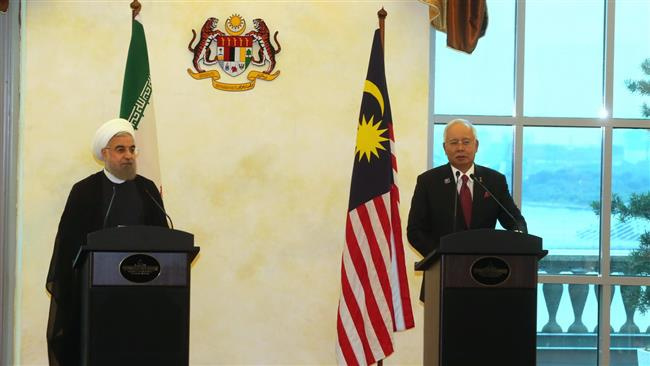Rouhani’s Southeast Asian Visit: Making the most out of JCPOA

Iran’s President Hassan Rouhani ended his Southeast Asia trip on Monday, October 10, 2016.
The six-day tour started from Vietnam, where Rouhani, as the first Iranian president to visit the country in two decades, met the socialist republic’s president, prime minister and secretary general of the ruling Communist Party. Rouhani expressed Iran’s readiness to supply the developing economy of Vietnam with its energy needs, and steel.
The rapid pace of economic development in this Southeast Asian country, known for Iranians mostly by its devastating war of the 1960s and 1970s against the US, brought praise from Deputy Chief of Staff for Political Affairs Hamid Aboutalebi, who reminded how the country and its people changed since his last visit 15 years earlier, complaining that while “Southeast Asia is vying to dominate the global economy, [Middle East] countries are engaged in massacre and bloodshed.”
Vietnam could be part of Rouhani’s plan to establish “strategic balance” wrote Azam Molaei in Iranian Diplomacy. “Rouhani has decided to take a chance also with middle powers in order to expand Iran’s market, power, and influence” she argued. “With its dynamic, developing situation, Vietnam not only brings further balance to the East-West equation in Iran’s diplomacy, but also helps Iran carve itself a niche in Southeast Asia and its influential regional organizations.”
Iran’s president visited Malaysia in the second leg of his southeast Asian tour. Once Iran’s leading partner in the ASEAN region, the country drifted apart during the years of nuclear standoff between Iran and the West. Toughening sanctions -particularly in the banking sector, anti-Shia sentiments and Saudi Arabia’s diplomatic moves, both intensified after the breakout of Syrian war, widened the gap between Tehran and Kuala Lumpur since early 2010s.
Nonetheless, Malaysia still holds a positive image in the eyes of both Iranian diplomats and observers. Pointing to Kuala Lumpur’s extensive banking connections, Reformist analyst and economic expert Saeed Leilaz said that the country could serve as a “mediator” for Iran in banking and purchase of goods. “Ties with Asia including the friendly and brotherly country of Malaysia have a special position in the Islamic Republic of Iran’s foreign policy,” Rouhani said during his joint presser with Malaysian PM Najib Razak, welcoming investments in Iran by Malaysian firms in oil & gas, where Iran is eager to sponge foreign capital to push forward exploration and development.
Rouhani visited Thailand in the final stop of his six-day tour, where he met with Prime Minister Prayut Chan-o-cha. With banking sanctions imposed by the US still restricting Iran’s fruitful trade with other countries, Rouhani called for reinforcement of banking ties between Tehran and Bangkok, just as he did in his visit with prime ministers of Vietnam and Malaysia, and spoke of doubling the trade volume between the two countries in a diverse range of areas.
Massoud Soltanifar, Deputy President in Tourism Affairs, reported negotiations between Tehran and Bangkok, to “balance the number of Iranian and Thai tourists that visit either countries”. Social freedom has turned Thailand into a highly popular tourist resorts for Iranians, with Thai Air recently inaugurating its first direct flight between Tehran and Bangkok. However, it remains a matter of question if Iran could attract a similar number of visitors from Thailand to take a tour of “Iran’s valuable cultural and historical attractions” through joint investment in hotels, or promoting Iran’s tourist attractions in Thai TV channels as suggested by Soltanifar.
Rouhani's visit to Southeast Asia received little criticism from his opponents inside the country, unlike his visits to European countries such as France and Italy, deemed as 'imperialists' poised to dupe Iran by the majority of Principlist media. With non-delivery of promises after the nuclear by Iran's Western partners, Iran's president may have realized that in the pivot to Asia, there lie opportunities for Iran.

